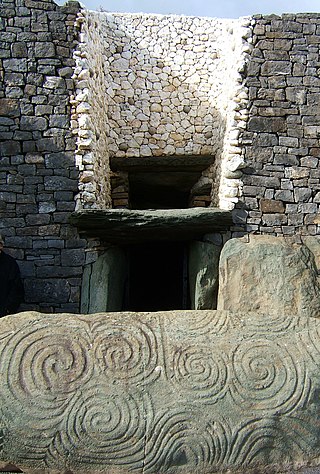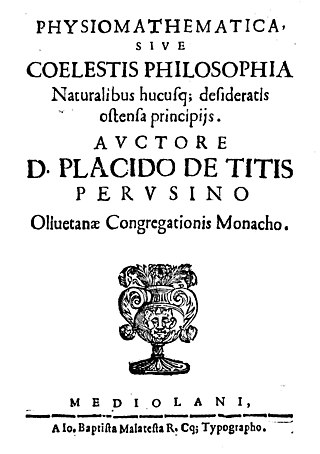
Astrology is a range of divinatory practices, recognized as pseudoscientific since the 18th century, that claim to discern information about human affairs and terrestrial events by studying the apparent positions of celestial objects. Different cultures have employed forms of astrology since at least the 2nd millennium BCE, these practices having originated in calendrical systems used to predict seasonal shifts and to interpret celestial cycles as signs of divine communications. Most, if not all, cultures have attached importance to what they observed in the sky, and some—such as the Hindus, Chinese, and the Maya—developed elaborate systems for predicting terrestrial events from celestial observations. Western astrology, one of the oldest astrological systems still in use, can trace its roots to 19th–17th century BCE Mesopotamia, from where it spread to Ancient Greece, Rome, the Islamic world, and eventually Central and Western Europe. Contemporary Western astrology is often associated with systems of horoscopes that purport to explain aspects of a person's personality and predict significant events in their lives based on the positions of celestial objects; the majority of professional astrologers rely on such systems.

Archaeoastronomy is the interdisciplinary or multidisciplinary study of how people in the past "have understood the phenomena in the sky, how they used these phenomena and what role the sky played in their cultures". Clive Ruggles argues it is misleading to consider archaeoastronomy to be the study of ancient astronomy, as modern astronomy is a scientific discipline, while archaeoastronomy considers symbolically rich cultural interpretations of phenomena in the sky by other cultures. It is often twinned with ethnoastronomy, the anthropological study of skywatching in contemporary societies. Archaeoastronomy is also closely associated with historical astronomy, the use of historical records of heavenly events to answer astronomical problems and the history of astronomy, which uses written records to evaluate past astronomical practice.

Western astrology is the system of astrology most popular in Western countries. Western astrology is historically based on Ptolemy's Tetrabiblos, which in turn was a continuation of Hellenistic and ultimately Babylonian traditions.
Hindu astrology, also called Indian astrology, Jyotisha or Jyotishya, and more recently Vedic astrology, is the traditional Hindu system of astrology. It is one of the six auxiliary disciplines in Hinduism that is connected with the study of the Vedas.

Astrological belief in correspondences between celestial observations and terrestrial events have influenced various aspects of human history, including world-views, language and many elements of social culture.

Astrology and astronomy were archaically treated together, but gradually distinguished through the Late Middle Ages into the Age of Reason. Developments in 17th century philosophy resulted in astrology and astronomy operating as independent pursuits by the 18th century.

An astrological age is a time period in astrological theory which astrologers say, parallels major changes in the development of Earth's inhabitants, particularly relating to culture, society, and politics. There are twelve astrological ages corresponding to the twelve zodiacal signs in western astrology. Advocates believe that when one cycle of the twelve astrological ages, called a Great Year, is completed, another cycle of twelve ages begins. The length of one cycle of twelve ages is 25,772 years.

Liz Greene is an American-British astrologer, psychologist and author. Her father was born in London, and her mother in the United States.

It is unclear whether a form of Early Irish astrology existed prior to contact with Western astrology, as the earliest Irish language sources are simply translations from standard Western sources. Historian Peter Berresford Ellis argues that although there is evidence of the development of Irish astrology from the 7th Century AD onwards, anything earlier is left to conjecture based on continental Celtic artifacts like the Coligny calendar and reconstructions from historical documents.

Psychological astrology, or astropsychology, is the result of the cross-fertilisation of the fields of astrology with depth psychology, humanistic psychology and transpersonal psychology. There are several methods of analyzing the horoscope in the contemporary psychological astrology: the horoscope can be analysed through the archetypes within astrology or the analyses can be rooted in the psychological need and motivational theories. There might exist other astrological methods and approaches rooted in psychology. Astrologer and psychotherapist Glenn Perry characterises psychological astrology as "both a personality theory and a diagnostic tool".

Hellenistic astrology is a tradition of horoscopic astrology that was developed and practiced in the late Hellenistic period in and around the Mediterranean Basin region, especially in Egypt. The texts and technical terminology of this tradition of astrology were largely written in Greek. The tradition originated sometime around the late 2nd or early 1st century BC, and then was practiced until the 6th or 7th century AD. This type of astrology is commonly referred to as "Hellenistic astrology" because it was developed in the late Hellenistic period, although it continued to be practiced for several centuries after the end of what historians usually classify as the Hellenistic era.
Stephen Arroyo is an American best-selling author and astrologer.
Locational astrology is any of various types of astrology that factor in specific locations of the Earth. The different types also carry a range of astrological techniques.

Astrology had support in early Christianity, but support declined during the Middle Ages. Support for it grew again in the West during the Renaissance.
Cultural astronomy, sometimes called the study of Astronomy in Culture, has been described as investigating "the diversity of ways in which cultures, both ancient and modern, perceive celestial objects and integrate them into their view of the world." As such, it encompassed the interdisciplinary fields studying the astronomies of current or ancient societies and cultures. It developed from the two interdisciplinary fields of archaeoastronomy, the study of the use of astronomy and its role in ancient cultures and civilizations, and ethnoastronomy, "a closely allied research field which merges astronomy, textual scholarship, ethnology, and the interpretation of ancient iconography for the purpose of reconstructing lifeways, astronomical techniques, and rituals." It is also related to historical astronomy, history of astronomy and history of astrology.
The Sophia Centre was founded in the School of Historical and Cultural Studies at Bath Spa University in 2002, as the first University centre in the world to teach cultural astronomy and the history and culture of astrology.

Placidus de Titis was an Olivetan monk and professor of mathematics, physics and astronomy at the University of Pavia from 1657 until his death. Placidus popularized the system of astrological houses now known as the "Placidian system", current in modern astrology. He did not invent the method; it is acknowledged by the 12th century Hebrew astrologer Abraham Ibn Ezra as the system employed by Ptolemy, an attribution that was accepted by Placidus.
John Naylor was a British astrologer.
Astrodatabank is a wiki website containing a collection of astrological data. The freely accessible database features the birth details and associated birth charts of public figures and mundane events. The collection was started by astrologer, Lois Rodden in 1979. Astrodatabank is currently owned and maintained by the Swiss company Astrodienst and is published in English.





